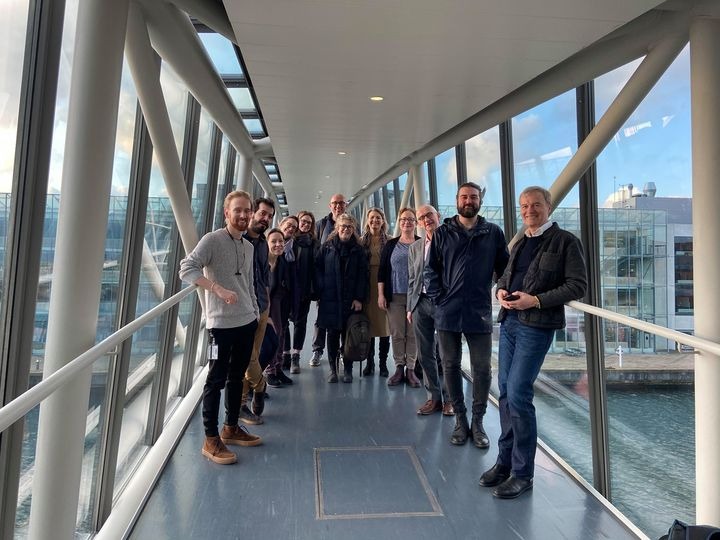LIGHT4HEALTH - International Project Second Summer School to Commence in October

From the first week of October to the first week of November 2020, the second LIGHT4HEALTH summer school will be held within the framework of the Erasmus + Strategic Partnership grant program.
Delayed due to Covid-19, the second summer school will be held this fall online and will cover the topic "Lighting for educational and office spaces". Hochschule Wismar (Germany) will be hosting the event.
Among the partners and project participants are the world's leading universities and European schools of architecture in the field of architectural lighting design. Namely – ITMO University (Russia), Thomas Jefferson University (USA), University of Wolverhampton (UK), Aalborg University (Denmark), Hochschule Wismar (Germany) and KTH Royal Institute of Technology (Sweden).
The international project LIGHT4HEALTH, started in 2018, includes in its framework, until August 2021, a series of three international summer schools and workshops for students and teachers of the consortium partner universities. The three summer schools (SS1-3) are designed as distinct, complemetary educational modules that develop the course focus on health-supporting indoor lighting: lighting for living spaces (SS1), lighting for work and/or educational environments (SS2) and lighting in healthcare settings (SS3).
The second summer school is dedicated to lighting for workspaces and educational environments. The peculiarities of the perception of lighting will be investigated under various scenarios (for example, at different times of day) and for different user groups, taking into account national and cultural characteristics, geographic zones and daylight conditions. The program of the second summer
school is designed for one month of online lectures and practical classes and includes five educational modules. Each module lasts one week. Students may attend lectures and perform practical tasks at any time convenient for them. Every Friday during the entire training period, online consultations and discussions with teachers will be held on the covered material. Also, student teams will present the results of completed practical tasks. Work on the project will be carried out in international groups, which are going to include participants from different universities of the consortium. In total, four training groups will be organized.
During the first week (module 1), LIGHT4HEALTH Summer School participants will be introduced to lighting standards. They are also going to discover flicker and glare ratings, as well as examples of lighting projects in workspace and learning environments. The second week (module 2) will focus on lighting metrics to assess the ability of a lighting solution to support human physiology, using on-site spectral power distribution (SPD) measurements. During the third week (module 3), we will touch upon the opportunities of simulation as well as user-oriented testing of dynamic lighting solutions on site. Weeks four and five (modules 4 and 5) are devoted to working on the final lighting design project. The fifth week will end with presentations of final lighting design group projects for an office or study space located at four of the consortium partner locations.
The coronavirus pandemic has slightly changed the timing of events within the LIGHT4HEALTH project, but the organizers hope that the third summer school in Copenhagen, Denmark will take place according to plan in the summer of 2021. It is going to complete the cycle of meetings of the consortium partners and will be devoted to the impact of lighting on health and well-being in medical institutions.
